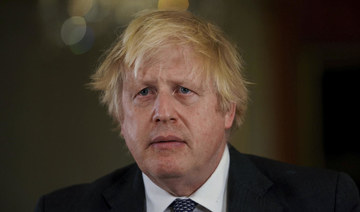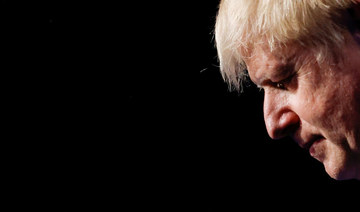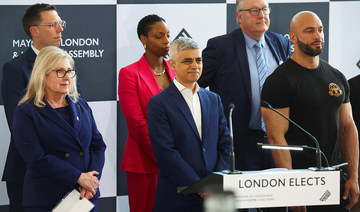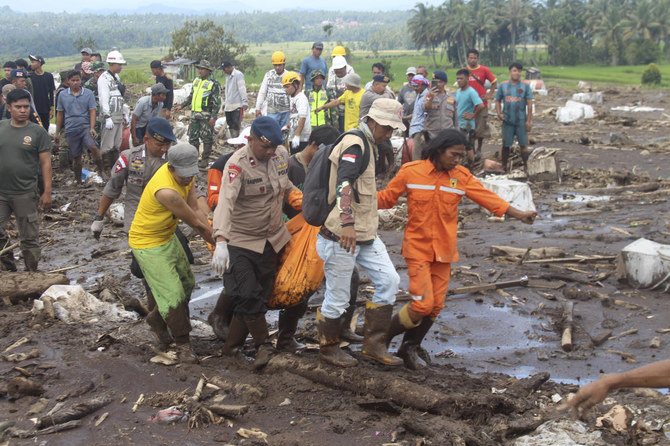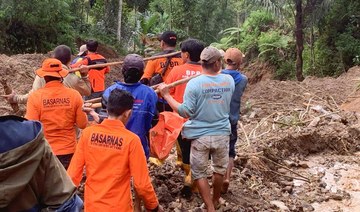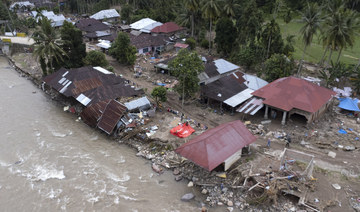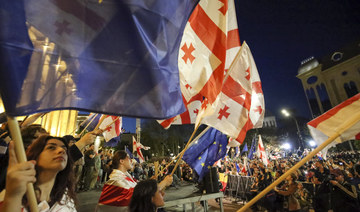LONDON: Boris Johnson, the former British prime minister, struggled to come to grips with much of the science during the coronavirus pandemic, his chief scientific adviser said Monday.
In keenly awaited testimony to the country’s public inquiry into the COVID-19 pandemic, Patrick Vallance said he and others faced repeated problems getting Johnson to understand the science and that he changed his mind on numerous occasions.
“I think I’m right in saying that the prime minister gave up science at 15,” he said. “I think he’d be the first to admit it wasn’t his forte and that he struggled with the concepts and we did need to repeat them — often.”
Extracts from Vallace’s mostly contemporaneous diary of the time were relayed to the inquiry. In them, he wrote that Johnson was often “bamboozled” by the graphs and data and that watching him “get his head round stats is awful.”
During the pandemic, Vallance was a highly visible presence in the UK He and the chief medical officer, Chris Whitty, regularly flanked Johnson at the daily COVID-19 press briefings given from the prime minister’s offices on Downing Street.
Vallance, who stepped down from his role as the British government’s chief scientific adviser earlier this year, said Johnson’s struggles were not unique and that many leaders had problems in understanding the scientific evidence and advice, especially in the first stages of the pandemic in early 2020.
He recalled a meeting of European scientific advisers where one country leader was said to have problems with exponential curves and “the telephone call burst into laughter, because it was true in every country.”
Johnson was hospitalized with the virus in April 2020 less than two weeks after he put the country into lockdown for the first time. Vallance conceded the prime minister was “unable to concentrate” on things when he was really unwell but that after his recuperation “there was no obvious change between him and what he was like beforehand.”
The UK has one of the highest COVID-19 death tolls in Europe, with the virus recorded as a cause of death for more than 232,000 people.
Johnson, who was forced to step down as prime minister in September 2022 following revelations of lockdown rule-breaking parties at his Downing Street residence during the pandemic, is due to address the inquiry before Christmas.
The probe, led by retired Judge Heather Hallett, is expected to take three years to complete, though interim assessments are set to be published. Johnson agreed in late 2021 to hold a public inquiry after heavy pressure from bereaved families, who have hit out at the evidence emerging about his actions.
The inquiry is divided into four so-called modules, with the current phase focusing on political decision-making around major developments, such as the timing of lockdowns. The first stage, which concluded in July, looked at the country’s preparedness for the pandemic.
The inquiry is set to hear from current Prime Minister Rishi Sunak, who was Johnson’s Treasury chief at the time and as such had a particular focus on the economic impacts of Britain’s lockdowns.
When he does appear at the inquiry, Sunak is likely to face questioning about his “Eat Out to Help Out” initiative, which sought to encourage nervous customers back to restaurants in August 2020 as the first set of lockdown restrictions were being eased and before subsequent lockdowns were enacted.
Vallance said scientists weren’t aware of the restaurant program until it was announced and that the messaging around it ran “opposite” to the need to limit mixing between households.
“I think it would have been very obvious to anyone that this inevitably would cause an increase in transmission risk,” Vallance said.
Soon after, positive cases started rising and the government came under huge pressure to institute a second national lockdown, something Johnson eventually announced at the end of October 2020.
The inquiry was shown a diary entry Vallance wrote before that lockdown and which referred to Dominic Cummings, Johnson’s chief political adviser at the time, saying that Sunak “thinks just let people die and that’s OK.”
When asked about the diary entry, the prime minister’s spokesman, Max Blain, said Sunak would “set out his position” when he gives evidence to the inquiry.
“I’m sure the public will understand the importance of listening to all the evidence of the inquiry before coming to a conclusion,” Blain said.





